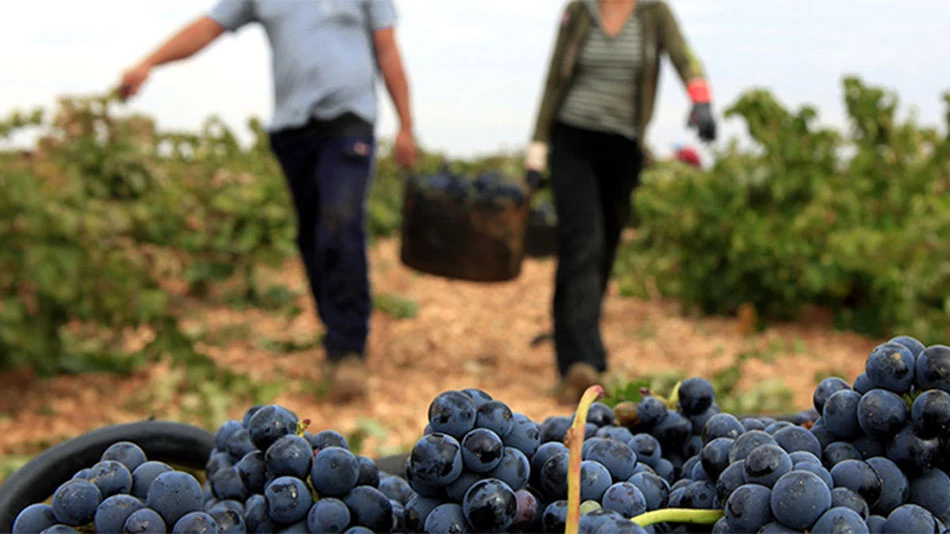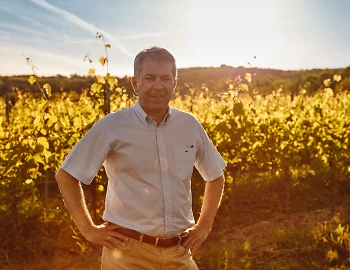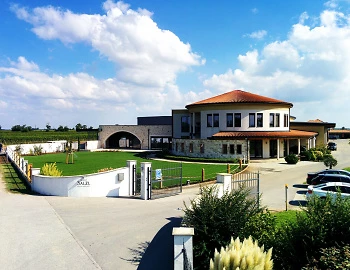Bodegas Campos Reales
The landscape of Meseta Central stretches out endlessly to include La Mancha, the land of Don Quixote and Sancho Panza, and also Spain's largest wine region.
The heart of the Iberian peninsula is characterised by an extremely continental climate with scorching summers and freezing winters. Luckily, the scarce downpours are aptly retained by the calciferous loamy soil in order to enable the vines' survival. Quite often, these are very old, gnarled, and stunted in their growth. In order to shield the grapes from the torrid heat using their leaves, the vines still are often reared low to the ground in the traditional manner -- also known as bush vines or 'en vaso'.
Red wines from Bodegas Campos Reales
from Bodegas Campos Reales
Next to Tempranillo or its local nomenclature Cencibel, the Bodegas Campos Reales also cultivate since 1950 many other grape varieties: Garnacha, Tintorera, Bobal, and white varieties such as Airén (which incidentally claims the largest vine area worldwide) or Macabeo, to name a few.
This is yet another case in which tradition meets modernity. The cellar's implementation of the latest vinification infrastructure does not exclude traditional processes such as hand-picking (which also applies to simple wines), the nurturing of the vines, the preservation of indigenous grape varieties, or the ageing in barriques. Led by a young, dedicated and highly specialised team, the bodega belongs to those vineyards propagating the self-proclaimed revolution of the Mancha wines and which carries its reputation worldwide of having an amazing price/pleasure ratio.

Producer

Erwin Tinhof
For 11 generations now, the Tinhof family has been growing wine in Eisenstadt on the Leitha Range in Burgenland. This constellation is the source of their knowledge and experience as to which grape varieties flourish particularly well in this location, allowing the production of wines characteristic for the area. Neuburger, Pinot Blanc and Blaufränkisch, Sankt Laurent, some on vines established 55 years ago – are the focus of their expertise.

Salzl
The Austrian winery Salzl Seewinkelhof is located in Illmitz, surrounded by the picturesque lakes and plains of the Neusiedlersee-Seewinkel National Park in Burgenland. A good hour’s drive from Vienna lies this family winery that also provides comfortable 4-star accommodation in an attached guesthouse with a pool.

Didier Joris
Didier Joris is a legendary figure in the Valais, where the history of wine would be unthinkable without him. He grew up in a farming family that initially concentrated on raising cattle. To this very day, Didier still raves about «his Queens», the Hérens fighting cows. It was only during the 1960s and 1970s that the Joris family began to terrace slopes to plant vines and cultivate vineyards.



